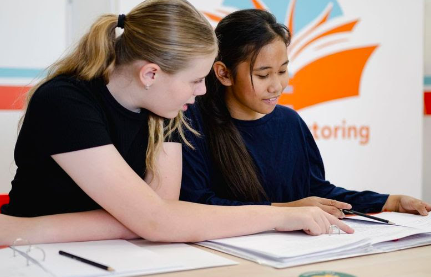
Tutoring expert shares top tips on how to spot the signs of learning challenges in order to transform obstacles into opportunities for a child’s growth
As awareness and research into childhood learning difficulties continue to become more advanced, more children are being diagnosed with learning difficulties earlier than ever.
According to Michael Black, founder and CEO of Success Tutoring, the number of children presenting with learning difficulties is on the rise.
“For parents it can be distressing to receive a diagnosis that your child has a learning difficulty, but on the flip side, now that the problem has been identified, steps can be taken to overcome the difficulty. Early intervention is likely to be more effective, and the sooner your child gets the help he or she needs, the better the chances of educational progression and academic success at school,” Black said.
Black is spearheading the growth of one of the country’s leading franchise tutoring businesses, Success Tutoring, and he is seeing many children not only overcome learning difficulties to turn their grades and enjoyment of school around, he is also witnessing kids feeling better about themselves and experiencing an uplift in their whole demeanor.
He explained that while diagnoses for learning difficulties can only be made by professionals, teachers and parents who have the children’s best interests at heart can learn to recognise some of the top five signs of learning difficulties in children.
“No two learning difficulties are the same, but parents can take note of some common signs,” Black added.
Top five signs of learning difficulties
Negative attitude towards school
“Most children naturally love to learn so if your child is speaking negatively about school and mentions that they don’t enjoy learning, it’s a sign that they are probably struggling with something at school,” Black said.
“In more extreme cases, they could express such negativity that it manifests itself in nightmares! Meanwhile, others might develop anxiety about going to school or become frustrated when given homework tasks.
“We are finding that children who do experience learning difficulties and undertake tutoring not only overcome issues but also go on to excel at school.”
Problems with paying attention
“Children who have problems focusing will have problems with learning because they struggle to focus on what the teacher is saying and can’t seem to be able to sit down and pay attention,” Black said.
“Of course everyone these days is familiar with the ADHD diagnosis. Please realise that ADHD is not a disability, it is a learning difficulty. There’s a difference between a learning disability and difficulty. Learning disabilities are lifelong and pervasive while a learning difficulty is something that can be rectified with intervention.”
Trouble following directions
“When children have trouble following directions or need to have instructions repeated, it takes them longer to complete tasks at school. They can also seem to not remember what they have been taught even if it’s just been taught or has been taught on numerous occasions,” Black said.’
“Children with ADHD often have trouble following instructions. This is a sign of having trouble with executive function, which means a group of skills needed to get through a task. So, it’s not that they’re zoning out, it’s actually a struggle to process information.
“We use unique approaches while undertaking tutoring to assist children to work through and complete tasks. These learned techniques are then used by children at school as well.”
Problems with reading and writing
“Problems with literacy can have a huge impact on a child’s ability to participate in school. If the child shows signs like not knowing the sounds associated with letters, or skips words in a sentence but doesn’t stop to self correct, or can’t remember words, or sounds the same word differently each time, you child will need some help with their reading and writing,” Black said.
“There are lots of ways to support common problems like dyslexia, which in fact is so common that around 20 percent of the Australian population has mild, moderate or severe dyslexia.”
Problems with numeracy
“Certain cognitive problems like difficulty remembering math facts, concepts, rules and formulae, difficulty with left and right orientation and difficulty following sequential procedures are signs of numeracy learning difficulties,” Black said.
“Dyscalculia is a far lesser known cousin of dyslexia and affects fewer people. Like problems with literacy however, there are resources and ways to support these learning difficulties.”
How tutoring helps
“If your child’s teacher has raised any concerns about your child’s learning, or if you are concerned about your child’s academic performance, tutoring is a great option to consider to offer support to your child,” Black said.
“An experienced tutor will be able to support your child’s learning journey by breaking down things that are difficult for them to grasp, helping them practice new concepts and skills and explain things to them in a way that they can understand and remember.
“Class sizes can run as large as 25 students and more per classroom in Australia, it’s a huge responsibility for a classroom teacher! Some children thrive better in a smaller group setting with more focus on them, which is how tutoring can help.”
Far reaching benefits of tutoring
“Besides just getting A’s, there are benefits of tutoring that many don’t think about. For example, it improves study habits and attitudes towards learning. As a student’s mastery of their subject improves, not only do their grades improve, but also their confidence increases,” Black said.
“An experienced tutor will always encourage students to ask questions, and to take charge of their learning because it encourages intellectual independence. Tutoring is a very rewarding journey to take with a student. As a tutor, it is wonderful to see a child flourish and improve their self confidence.”
SheSociety is a site for the women of Australia to share our stories, our experiences, shared learnings and opportunities to connect.

Leave a Reply